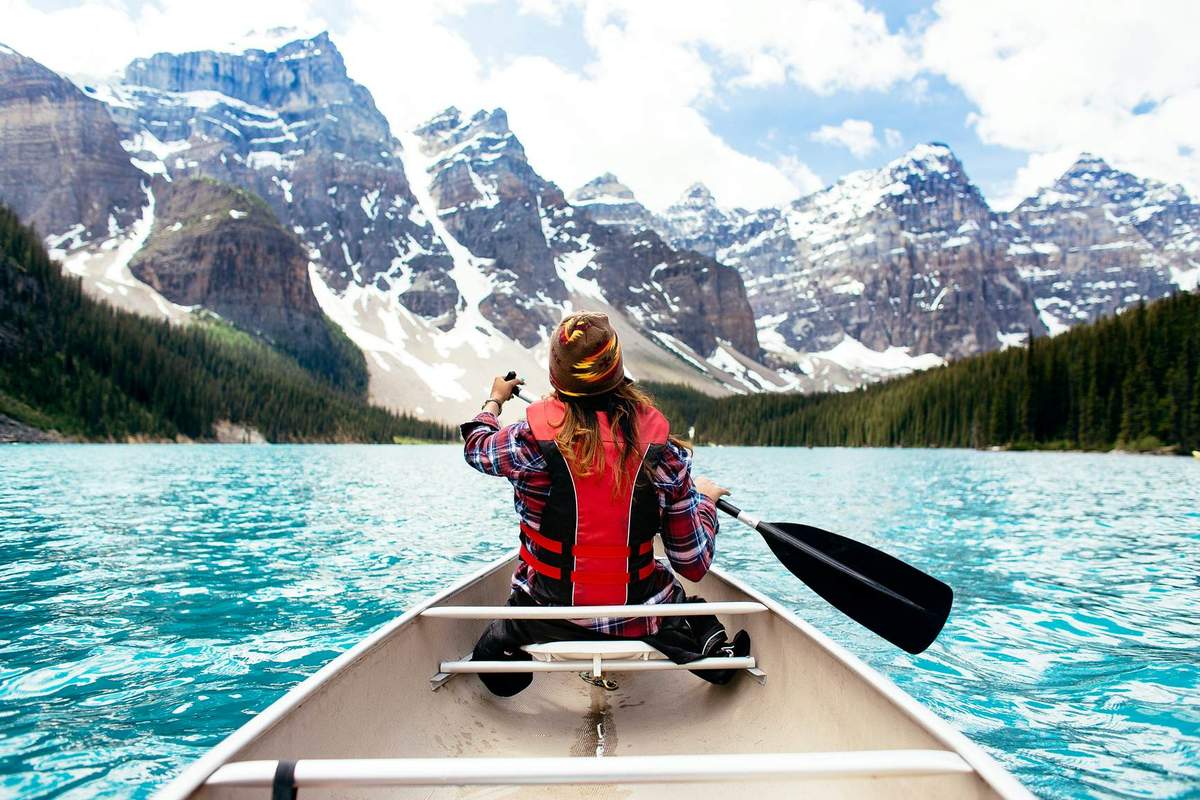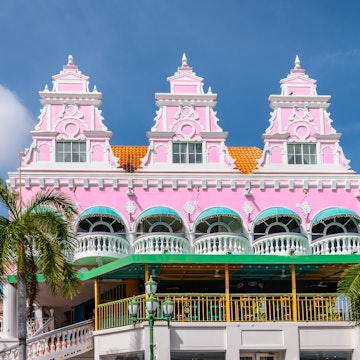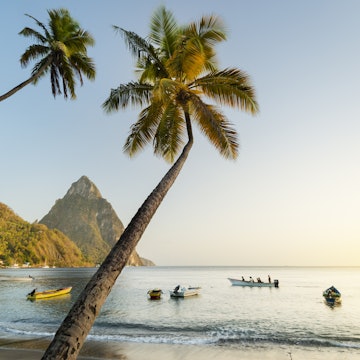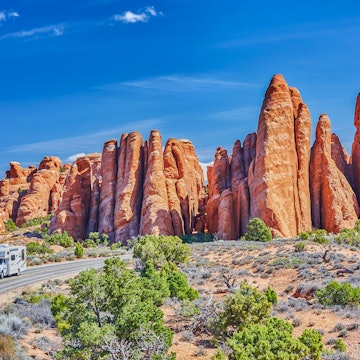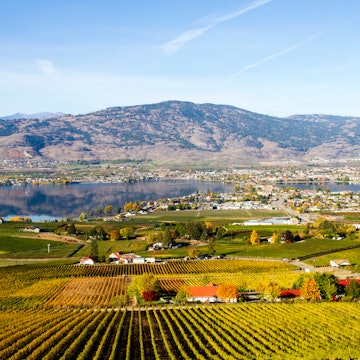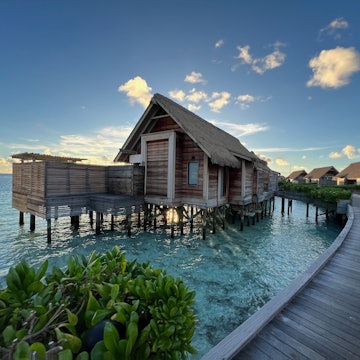

Kitsilano Beach Park, Vancouver. karamysh/Shutterstock
In a stunning setting between the mountains of British Columbia and the Pacific Ocean, Vancouver effortlessly blends natural beauty with vibrant urban charm. From the multicultural buzz of Main St to family-friendly Granville Island and the historic allure of Chinatown, Vancouver offers a wide variety of experiences.
Typical for Canada, Vancouver’s two distinct tourist seasons provide totally different – but equally exciting – experiences, with winter easily matching summer thanks to psychedelic night skies and generous snowfall in the mountains above the city.
July and August are peak season, and the summer months bring plenty of sun and long opening hours at local attractions. The downsides? Crowds, surging accommodation prices and the risk of wildfires (closures, detours and even area evacuations can seriously affect your trip).
Vancouver’s shoulder seasons from March to April and October to November are both less crowded and less expensive, and while the weather is generally comfortable, it can be volatile. During pleasant days, mild temperatures and cloudy skies always seem to carry a chance of rain, with November generally the wettest month of the year.
No matter when you decide to visit Vancouver, there are plenty of world-class green spaces, outdoor adventures and cultural events to keep you busy. Here are some seasonal suggestions and highlights.
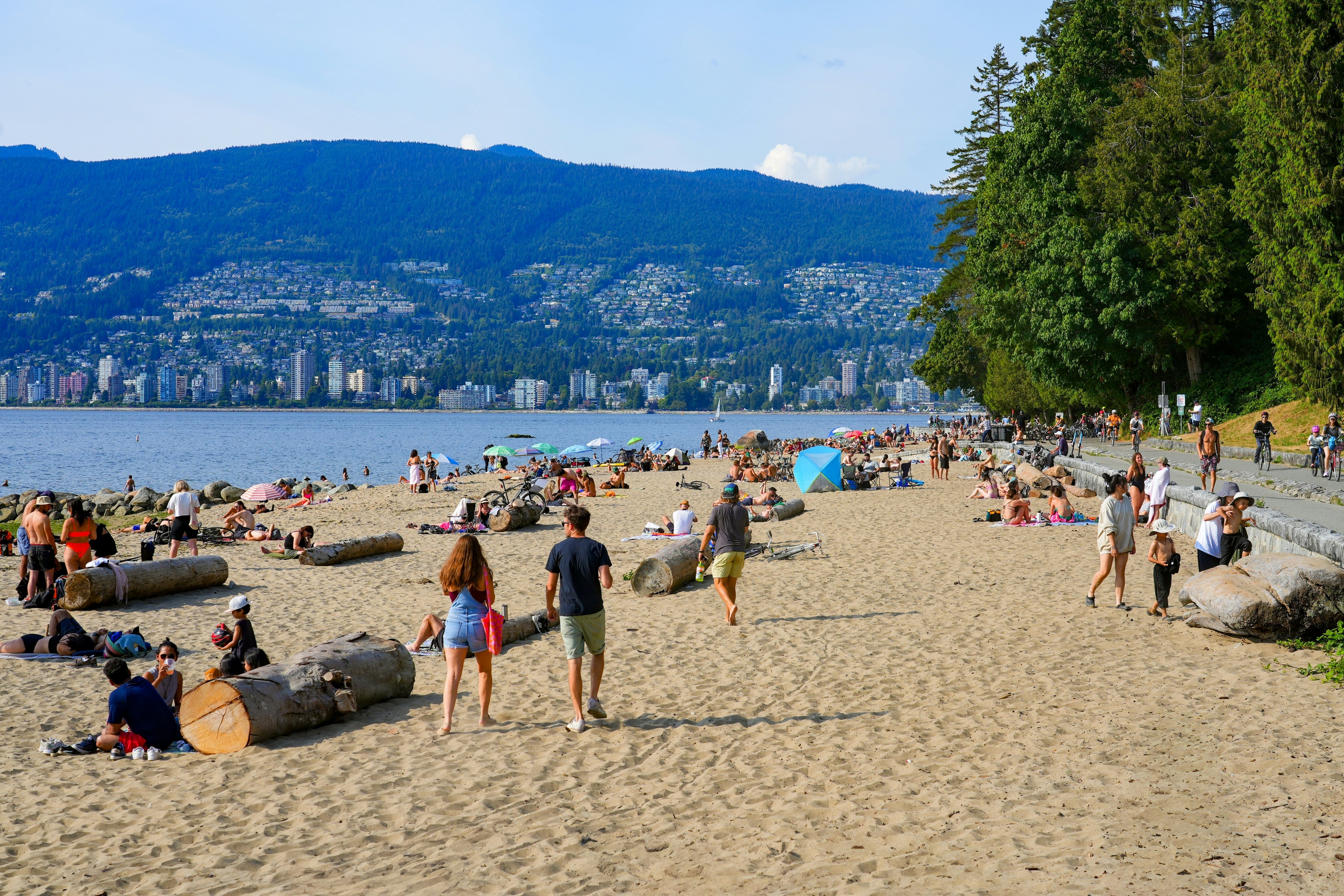
May to September is the best time for outdoor activities
Weather in Vancouver in summer: Average temperatures range around the low 70s℉ (mid-20s℃), and the summer’s long, warm days are ideal for spending time outdoors.
The high season in Vancouver is for wildlife, hiking and summer sun. Adventurers will want to hit nearby trails like gentle Quarry Rock and challenging Grouse Grind, or paddle on the city’s many waterways. City folk will be hitting the pavement to explore downtown and dine alfresco at Tap & Barrel Bridges, take in a game at BC Place Stadium or have a picnic in one of the city’s premier parks.
You can easily spend a day wandering the trails and attractions of Stanley Park, a magnificent green space that stuns in all seasons – though summer is best for hitting the beaches and pools. A popular outdoor venue for summer events, Creekside Park is home to Vancouver’s largest playground, complete with a climbing tower, swings and slides, water and sand play areas, waterfront views and a thrilling zip-line. Don’t miss outdoor concerts during June’s Jazz Festival; the Celebration of Light in July, with choreographed fireworks over English Bay; and the long-running, family-friendly Pacific National Exhibition (known to locals as PNE), held the last weeks of summer at Hastings Park.
You can also explore public art displays along Main St and the plazas in South Granville, which combine creative seating structures with colorful murals to create inviting spaces to relax, connect and dine outdoors. Vancouver is a great launching point for adventures farther out, such as paddling the Sea to Sky Marine Trail, hiking Garibaldi Lake, or surfing in Tofino on the Pacific side of Vancouver Island. May kicks off prime season for whale-watching; September ushers in the salmon leap – and bears feast. Book a tour to witness nature’s fierce beauty.
Key events: International Children’s Festival, International Jazz Festival, Canada Day, Celebration of Light, Pride Parade and Festival, PNE Fair, Vancouver Fringe Festival
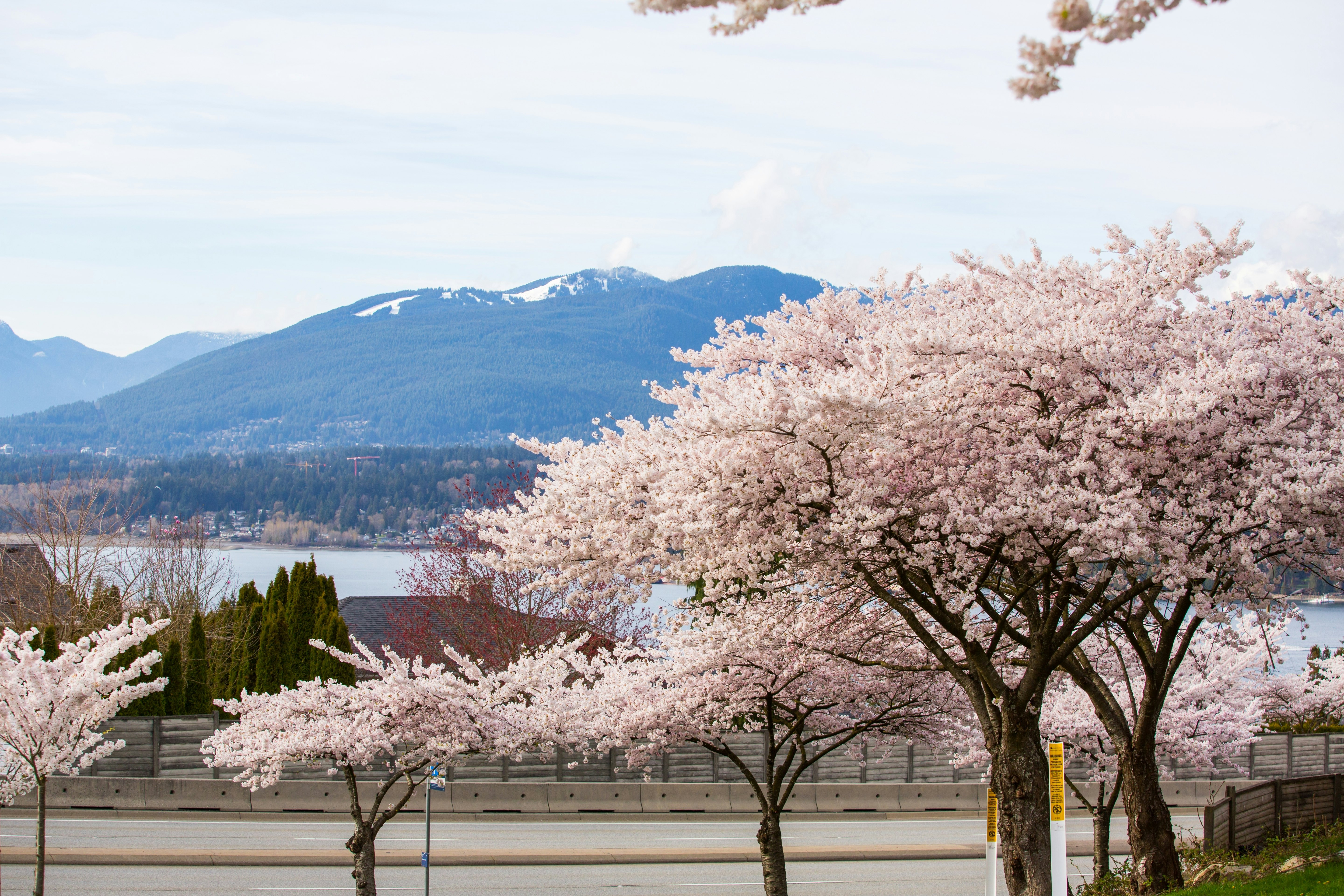
October to November and March to April are the best times for budget travel
Weather in Vancouver in fall and spring: Conditions are typically fair, with lingering warm days, although the rainy season begins to set in by the end of October. In early spring and late fall, the average temperature is around 55°F (12℃).
Traveling during shoulder seasons is ideal for budget-minded visitors looking to take advantage of fewer crowds and cheaper hotel rooms. And Vancouver always offers plenty of draws, even on rainy days. Historical and cultural attractions like the Chinatown Storytelling Center, the Vancouver Art Gallery and the Bloedel Conservatory are great places to escape unpleasant weather. Rain or shine, Granville Island Public Market is ideal for whiling away an afternoon, snacking on goodies among the buskers or browsing locally made arts and crafts. Spring and fall also bring popular events, including Vancouver’s Cherry Blossom Festival and International Film Festival.
Key events: Cherry Blossom Festival (March–April), International Film Festival(October)

December to March is the best time for snowy adventures and gourmet delights
Weather in Vancouver in winter: With average temperatures around 35°F (1.6℃), you should bundle up – and don’t forget your toque (the Canadian name for a wool hat), scarf and gloves.
Winter is the perfect time to hit the slopes at nearby Cypress Mountain, Mt Seymour and Grouse Mountain. Vancouver is also just a two-hour drive to one of the most envy-inducing ski areas in the world: Whistler–Blackcomb. Draped over two mountains, the ski area has North America’s highest vertical drop, coolest ski village and most varied terrain.
Canada’s largest food and drink festival, Dine Out Vancouver festival takes place in January and February, making winter a great time for gourmets looking for prix-fixe menus. (Several participating spots have been recognized with Michelin stars and the Bib Gourmand designations.) You’ll also have an easier time scoring reservations outside of the summer-time rush at acclaimed Michelin-recognized eateries like Published on Main, Burdock & Co and Anh and Chi.
Key events: Vancouver Christmas Market (November–December), PNE Winter Fair (December), Dine Out Vancouver (January–February)






